Posts in Category: Information
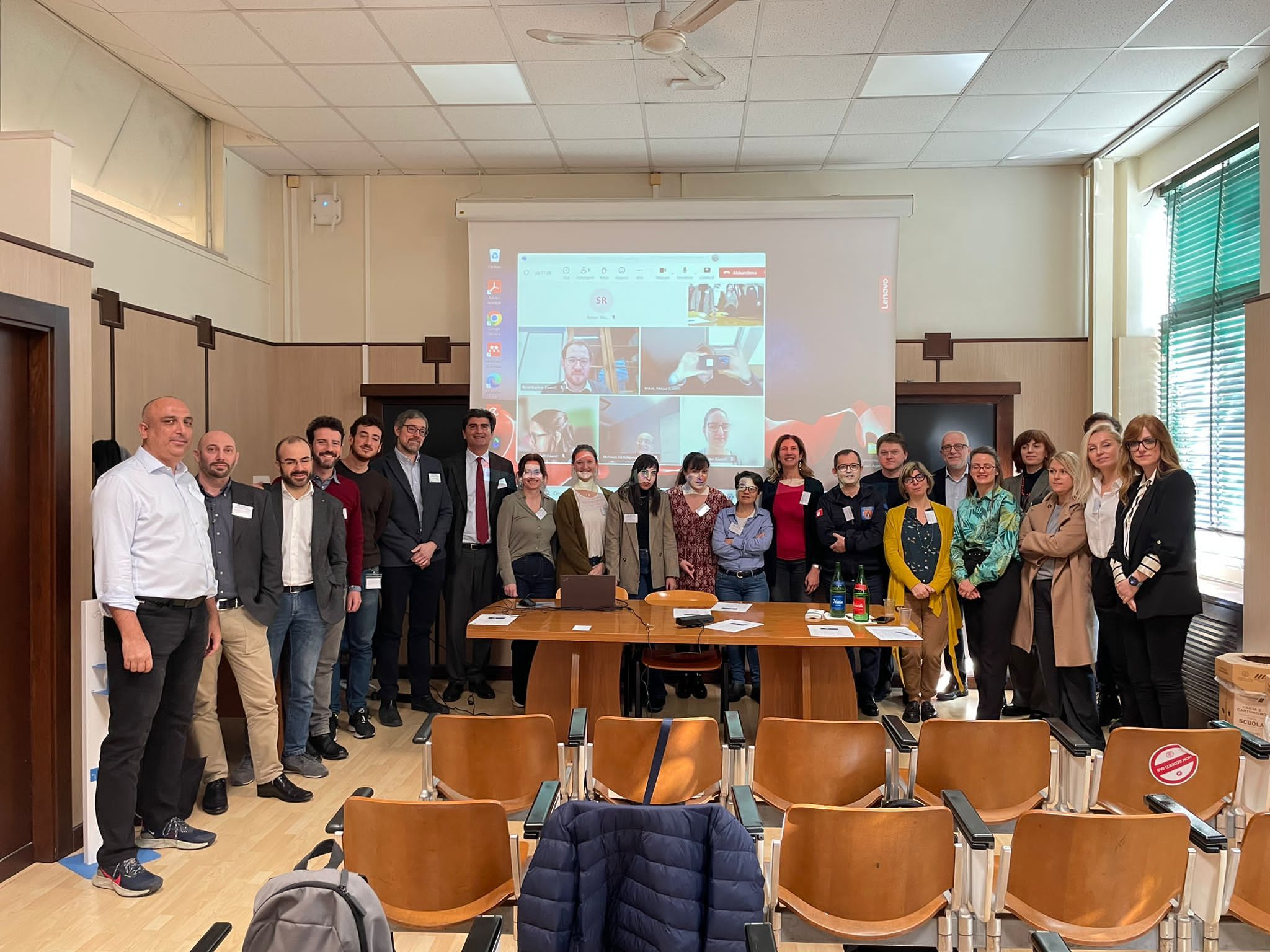
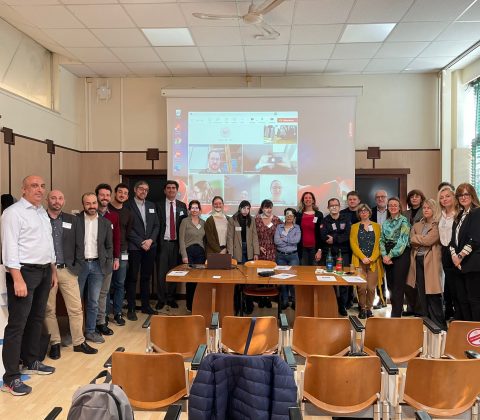
BORIS2 has started!
With BORIS2, we continue our efforts to empower stakeholders with a harmonised multi-risk assessment methodology and a tool supporting riskassessment and emergencyplanning in cross-border areas.
In BORIS2, the multi-risk analysis methodology developed in the first project BORIS, that was implemented at municipality scale, will be modified for application at sub-municipal level (e.g. at census tract level) considering relevant multi-risk scenarios. This will enable highlighting urban areas that are most impacted by single and multiple risks for a better emergency planning. Moreover, critical infrastructures and their connections will be included for the evaluation.
Expanding on the concept of Limit Condition for the Emergency and its associated evaluation model proposed by the Italian Civil Protection Department, which is aimed at checking the physical efficiency after a seismic damaging event of the emergency system of urban settlements, a multi-risk approach that could be applied also in cross-border regions will be proposed delivering a comprehensive methodology for institutions operating in different national contexts.
A “scenario-driven” approach will be tested for the assessment of the impacts of seismic, flood or multirisk events on assets and infrastructures relevant for emergency management. Results of BORIS2 will be integrated in the existing BORIS platform, ensuring its interoperability.
The project consortium consists of the following organisations:
- Italian Center for Research on Risk Reduction CI3R (coordinator)
- University of Ljubljana
- Disaster Competence Network Austria
- University of Montenegro
- TED Üniversitesi
Also, the following organisations are part of BORIS2 as Associated Partners:
- Università degli Studi di Udine
- Friuli Venezia Giulia Civil Protection
The BORIS2 kick-off took place on 7-8 February, 2024 at the University of Naples Federico II (Università degli Studi di Napoli Federico II) with not only the project consortium present but also stakeholders. We were happy to welcome Daniela Di Bucci from the Italian National Civil Protection Department as well as Aldo Primiero from Friuli Venezia Giulia Civil Protection who provided insights into the work and challenges of civil protection in cross-border areas.
We look forward to our next steps in BORIS2!
The project is co-financed under GA n° 101140181 in the Union Civil Protection Mechanism (call UCPM-2023-KAPP-PREV).
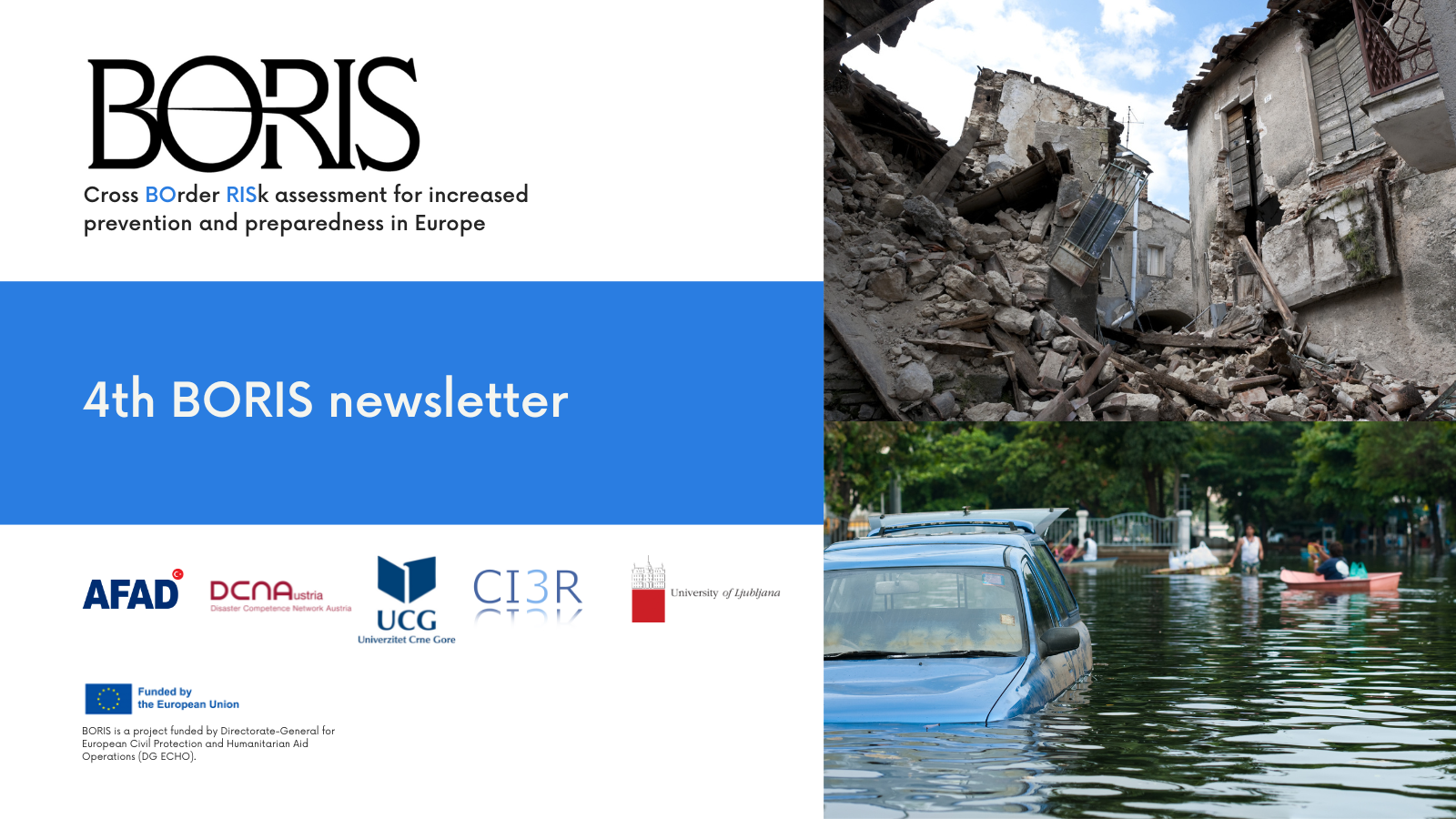
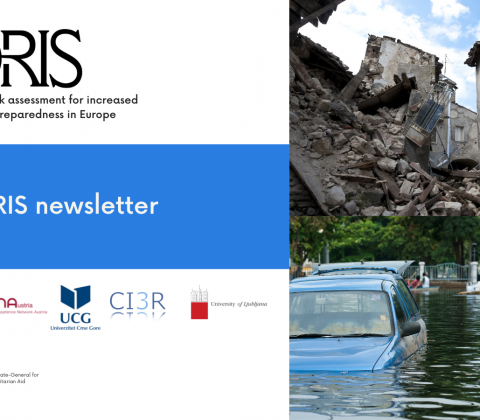
Fourth BORIS newsletter available
We are happy to announce that the fourth edition of our newsletter is now available for download. It includes an overview of the events in the past months with the final conference as the highlight.
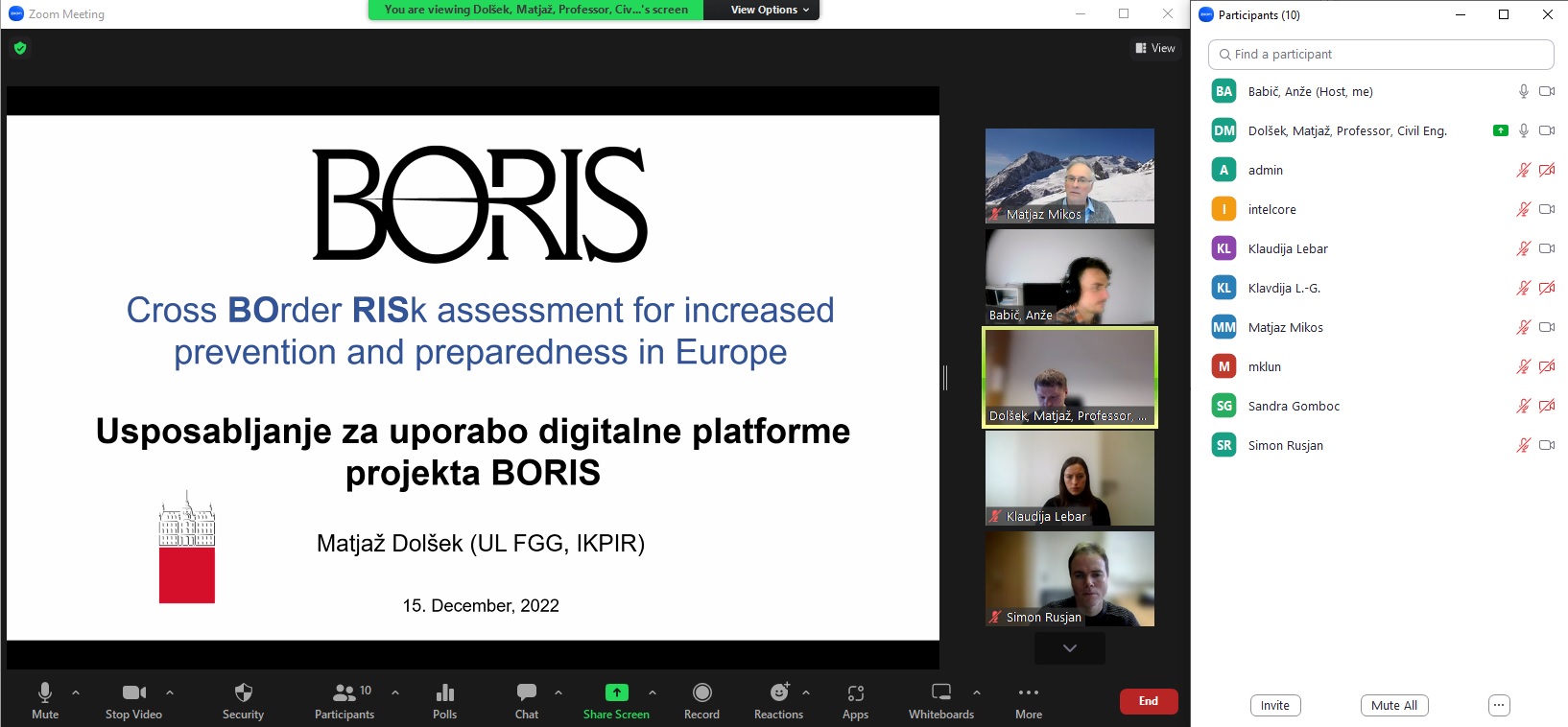
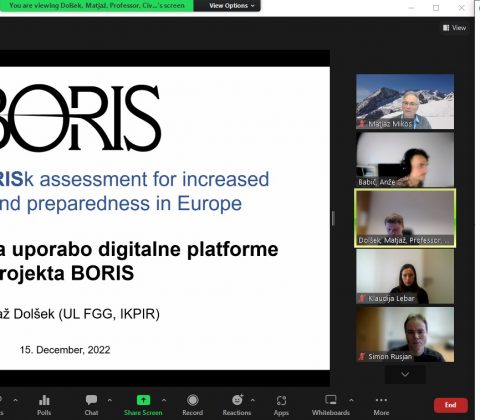
BORIS platform training in Slovenia
The training session for operational usage of the BORIS platform was held online on 15 December 2022. The following stakeholders, all representatives of the Administration for Civil Protection and Disaster Relief of the Republic of Slovenia, attended the training:
- Mojca Oberdank (Nova Gorica branch)
- Darja Adam Pak (Maribor branch)
- Klavdija Lebar-Gerebic (Murska Sobota branch)
- Sandra Gomboc (Maribor branch).
The training was led by Matjaž Dolšek, Klaudija Lebar, and Anže Babič in the Slovenian language. Matjaž Mikoš, Simon Rusjan, and Mateja Klun from the UL Project Team also attended the training.
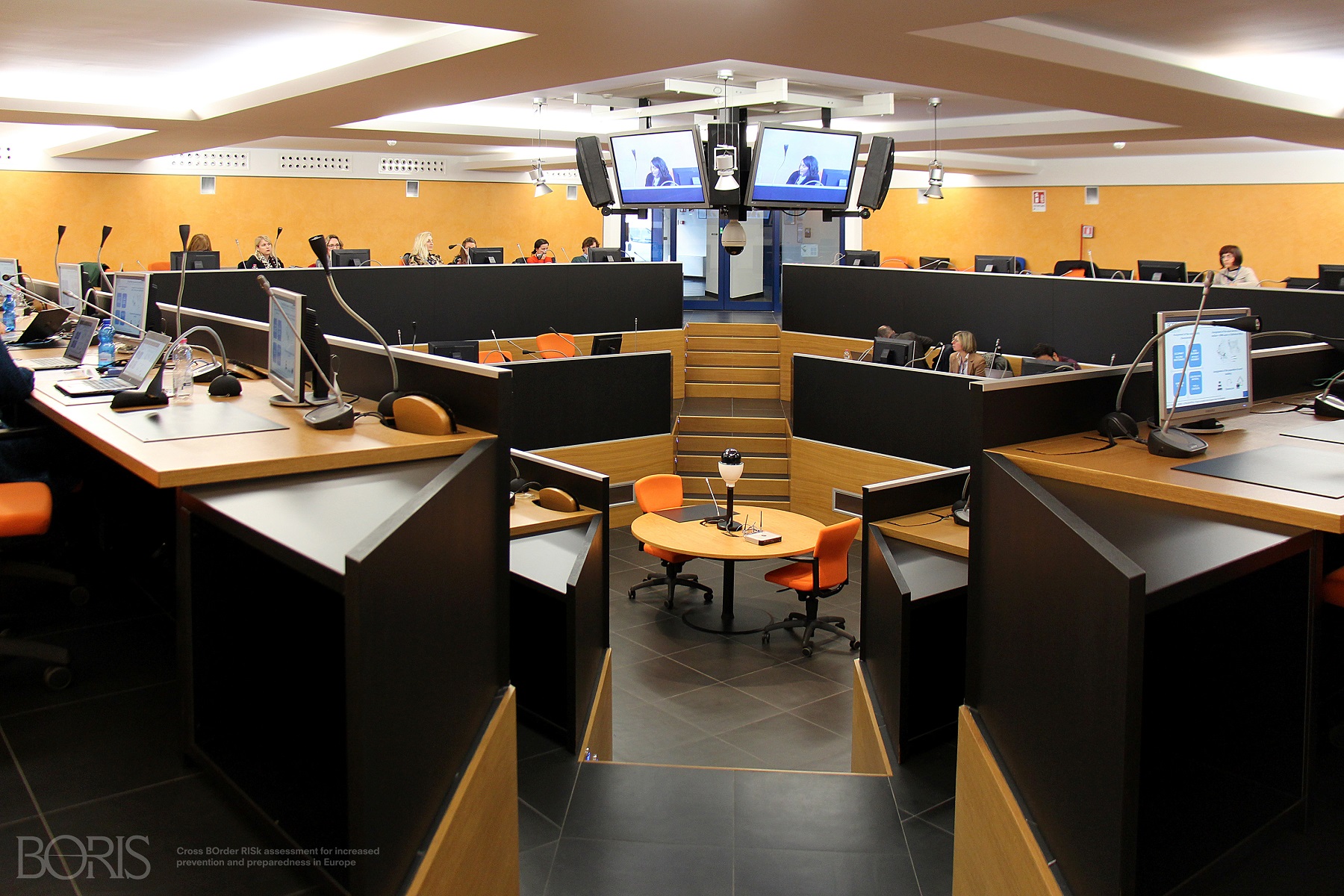
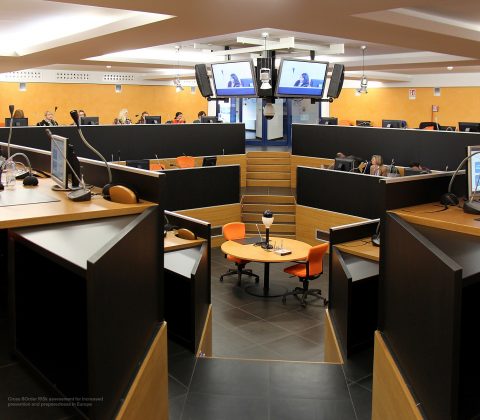
Recap: final conference in Pavia, Italy
On Monday, December 12, the BORIS project team, representatives from the European Union, as well as stakeholders from civil protection, met for the final conference of the project. This meeting was conducted in Pavia, Italy, in a hybrid format to allow participants to join remotely.
The goal of this conference was to wrap up the project, present the results, and find synergies and potential connections for further work on the topic of cross-border risk assessment for increased prevention and preparedness in Europe.
After a brief welcome, the conference started with an insight into the UCPM programme on prevention and preparedness by Christian Aagaard. The following presentations provided an overview of the Italian Civil Protection and how it ties in with EU-funded DRR projects as well as its competence centres by Daniela Di Bucci and Elena Speranza. Then, the project and its results were presented by the project team.
We are very content with the conference and the input we received as well as the new connections that were established.
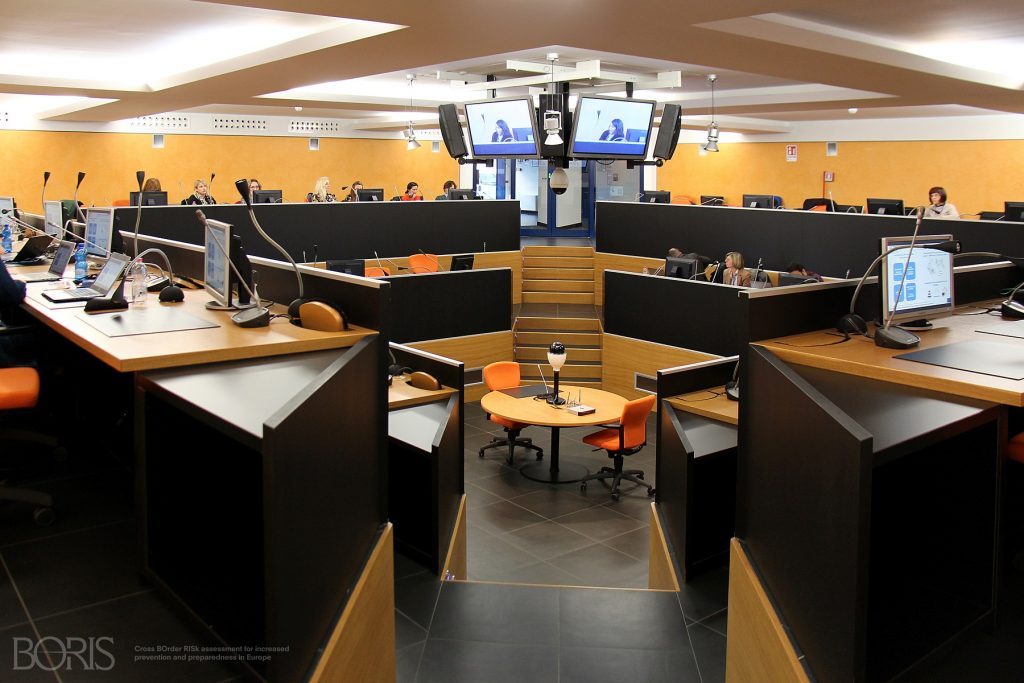
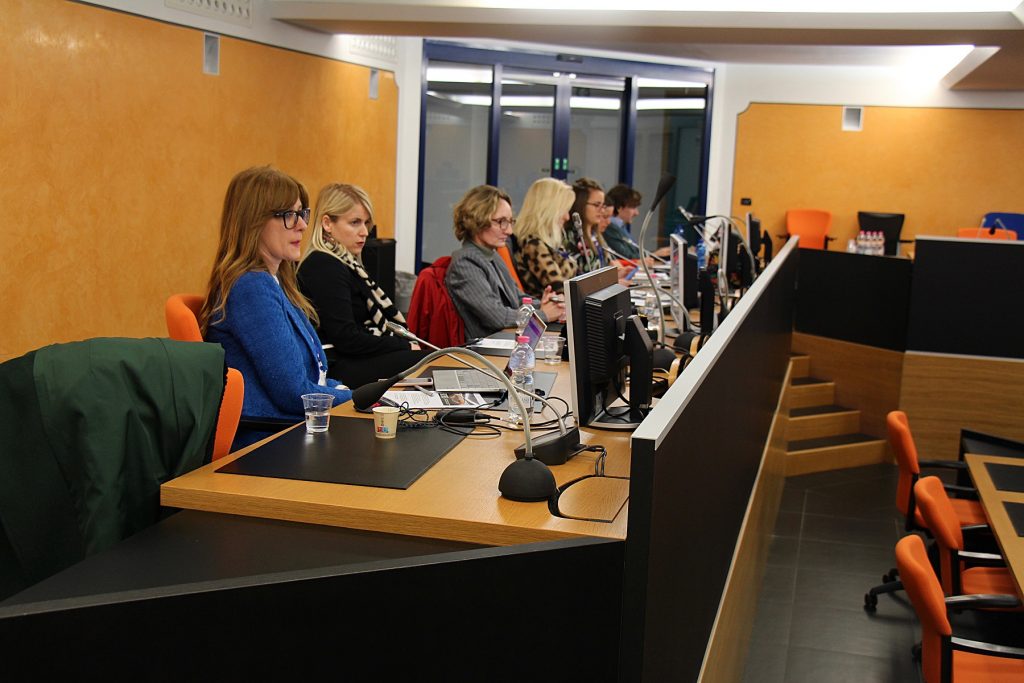
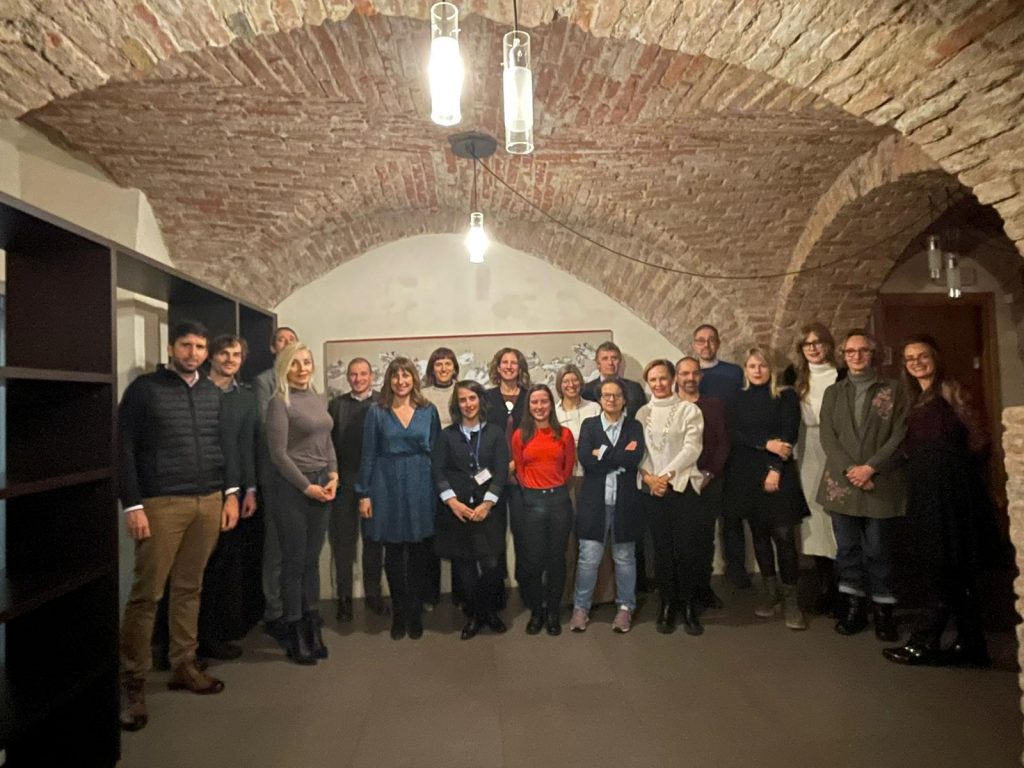
All presentations from the event can be viewed here. View the recorded conference stream here:

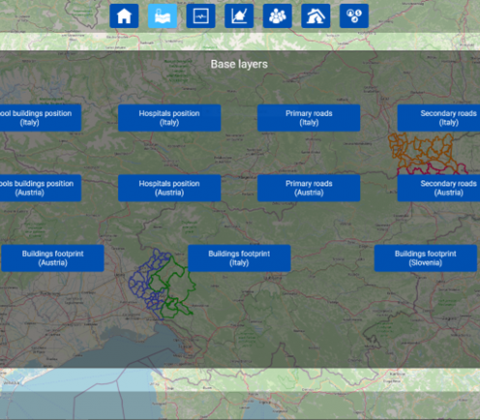
Learn about BORIS – in videos!
As the project nears its end, we are proud to present the project overview and part of the project results in the form of two videos.
Learn about BORIS in general:
Learn about the BORIS platform:
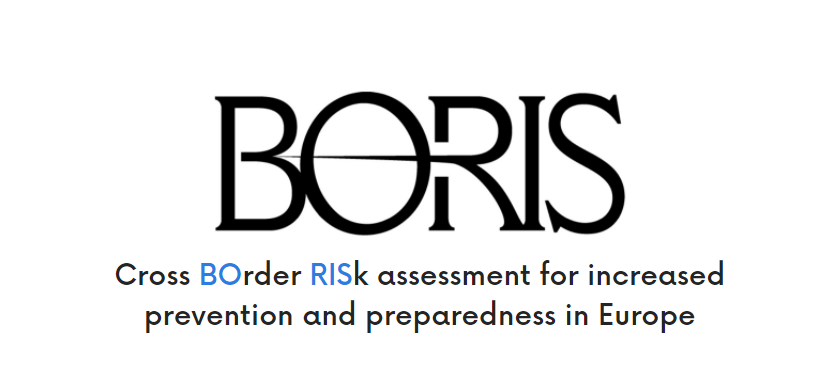
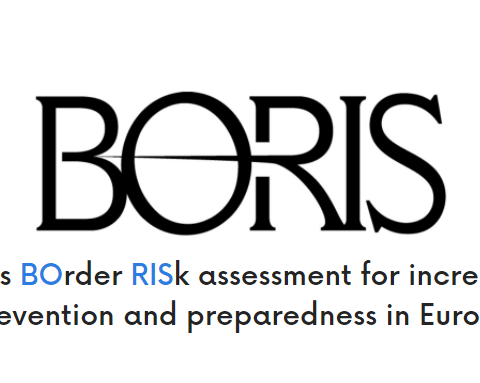
BORIS training in Friuli
Today and tomorrow, the Italian BORIS training will take place in Friuli. Find the programme here >
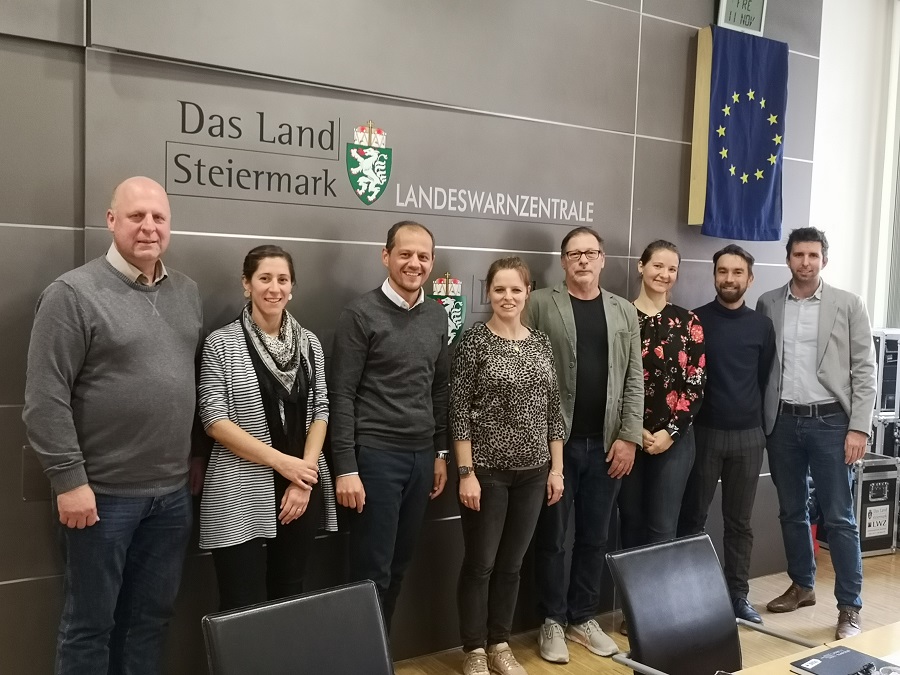
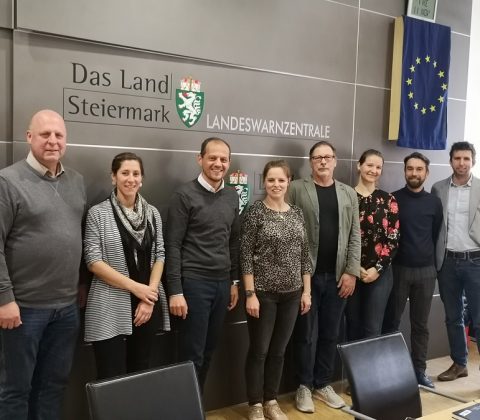
Austrian BORIS training
On November 11th, the Austrian BORIS training took place at Landeswarnzentrale Steiermark (Styrian warning center) with participants from the federal province of Styria. After a project introduction and showcasing the platform, we went into an in-depth discussion of the project results and open questions.
The participants were very active and supportive of the project and praised the current status of the results. Additionally, they provided insights into their work and needs, helping the BORIS team to note down additional pain points that might be part of the BORIS platform in the future.
Thanks to all the participants in the training! We are grateful for the great feedback and insightful discussions.
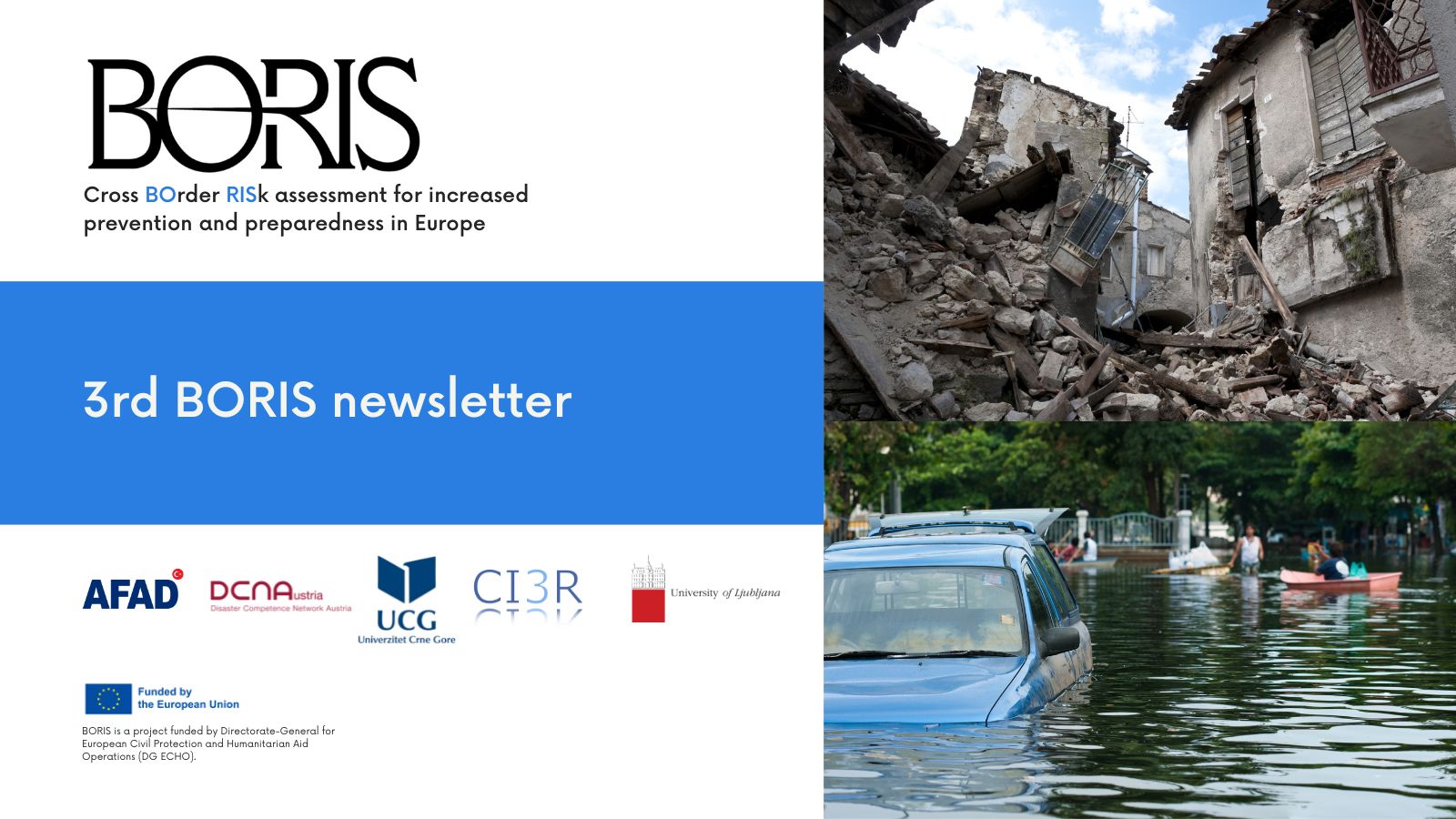
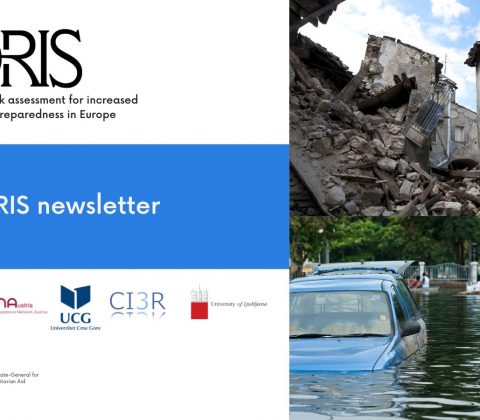
Third BORIS newsletter available for download!
We’re happy to share with you the latest edition of our BORIS newsletter, showcasing project and work package updates as well as events. Download it here:
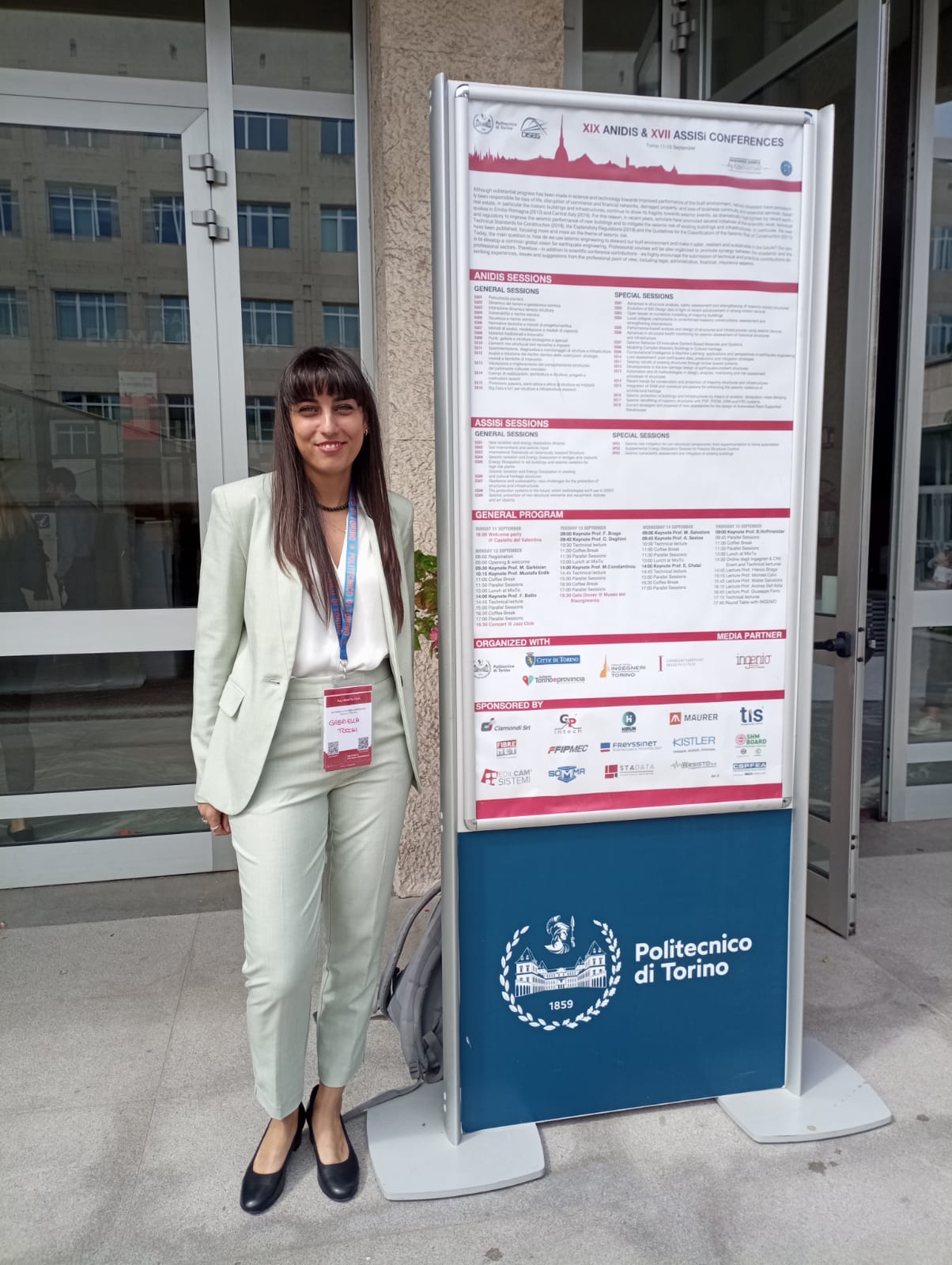
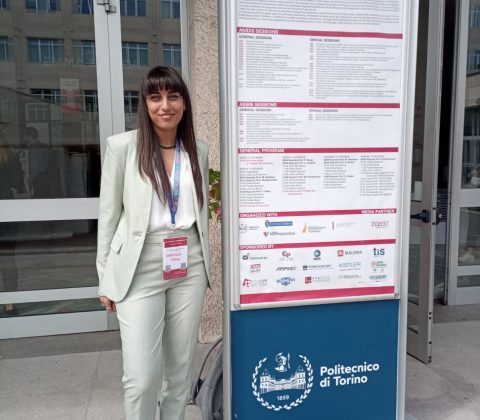
BORIS at XIX ANIDIS conference
Last Monday, BORIS team member Gabriella Tocchi presented a paper about the BORIS project at XIX ANIDIS conference, a National Conference on Seismic Engineering in Italy that took place in Turin, Italy.
The work presented was titled “Seismic risk assessment in transboundary areas: the case study on the border between Italy and Slovenia” and illustrates the methodology proposed within BORIS project to perform harmonized cross-border seismic risk assessment in the transboundary region, with an application at Italy and Slovenia border for the city of Gorizia and Nova Gorica. The authors of this paper are M. Polese, G. Tocchi, M. Dolsek, A. Babik, M. Faravelli, D. Quaroni, B. Borzi, A. Prota.
The above paper presented at the conference will be indexed on SCOPUS and published on Procedia Structural Integrity (ELSEVIER).
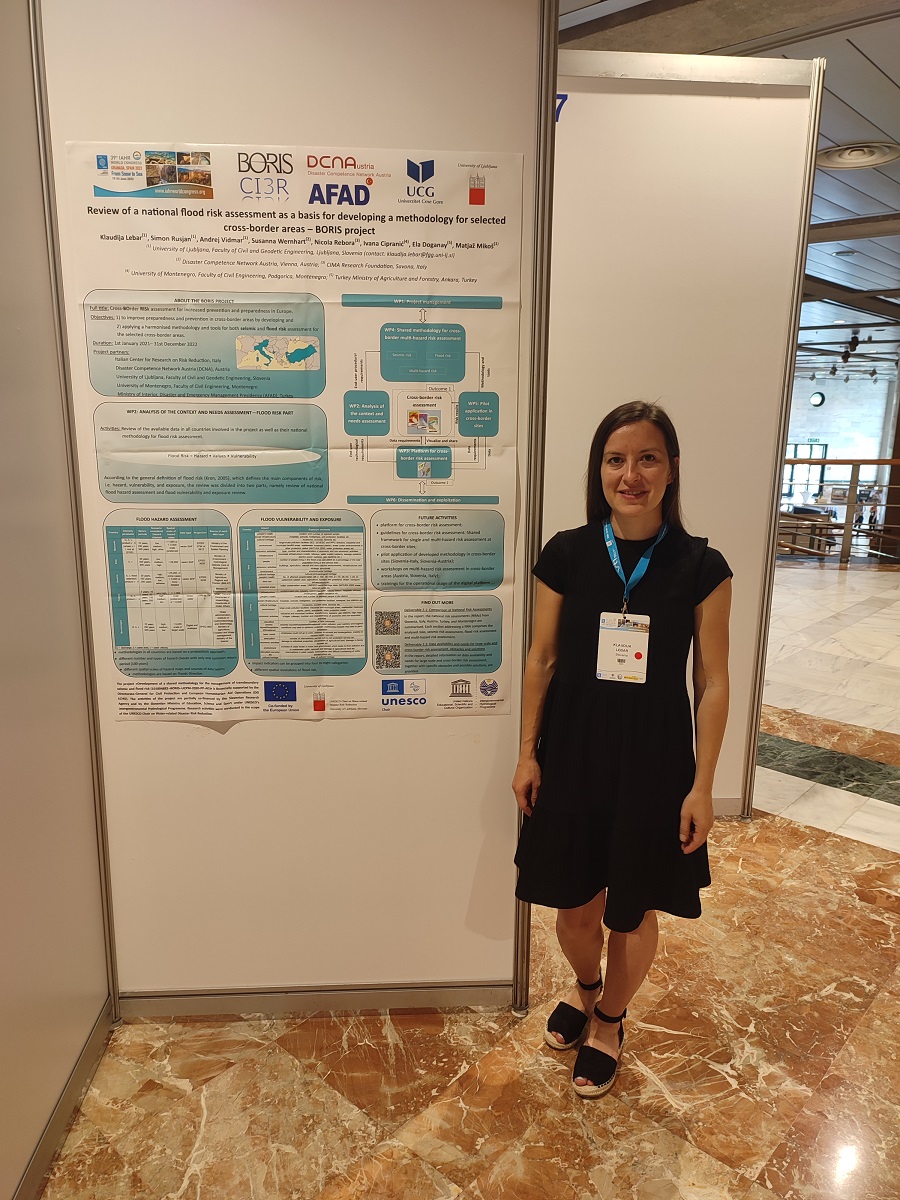
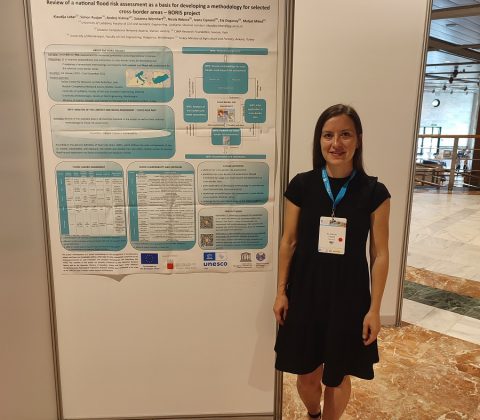
Successful presentation at IAHR
IAHR World Congress took place from June 19-24 in Granada, Spain. The International Association for Hydro-Environment Engineering and Research (IAHR) brought together the international research community, inviting them to contribute to the conference’s central theme “From Snow to Sea”, linking past with present and focusing attention on the importance of considering the integral water cycle to address present and future challenges.
Our colleagues Klaudija Lebar and Simon Rusjan from the University of Ljubljana presented their submission in the form of a poster. We’re happy to provide you the poster as a download here:
